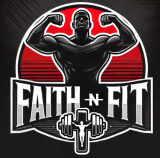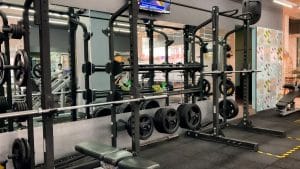Massage therapy plays a crucial role in modern fitness routines, significantly improving recovery time, reducing muscle soreness, preventing injuries, and enhancing overall athletic performance. Whether you’re a professional athlete or a weekend warrior, integrating massage into your training can boost circulation, decrease inflammation, improve flexibility, and promote mental well-being. With increasing accessibility, services like massage therapy Kingston are making it easier for individuals to experience these benefits, supporting healthier, stronger, and more balanced bodies.
In the evolving world of fitness and sports, the pursuit of peak performance is matched by a rising focus on effective recovery strategies. Athletes, bodybuilders, runners, and fitness enthusiasts alike are continually exploring methods that not only push their physical boundaries but also help their bodies recover more efficiently. Among the most time-tested and scientifically backed methods is massage therapy, an age-old practice that has earned a modern reputation as a cornerstone of athletic wellness.
Massage therapy, once viewed solely as a luxury, is now recognized as a therapeutic tool that supports athletic performance in multifaceted ways. Whether you’re lifting weights, running marathons, cycling through mountain ranges, or attending CrossFit sessions, massage therapy can significantly enhance your recovery and help elevate your performance to the next level.
Let’s explore how and why massage therapy is a powerful ally in fitness recovery and performance enhancement.
1. Speeds Up Muscle Recovery
After intense exercise, the body experiences microtears in muscle fibers, leading to inflammation and soreness. Massage therapy aids in speeding up the body’s natural recovery processes by:
- Increasing blood flow to muscles
- Facilitating the removal of metabolic waste like lactic acid
- Reducing delayed onset muscle soreness (DOMS)
Several studies have shown that post-exercise massages reduce muscle swelling and improve muscle function. Techniques such as Swedish massage or sports massage are particularly effective at flushing out toxins and delivering fresh oxygenated blood to fatigued tissues.
2. Reduces Muscle Soreness and Pain
Muscle soreness is a natural part of an effective training regimen. However, chronic pain or excessive soreness can derail progress and reduce motivation. Massage therapy can help by:
- Loosening tight muscle groups
- Breaking down adhesions and scar tissue
- Triggering the release of endorphins, the body’s natural painkillers
Athletes who receive regular massages often report decreased pain levels and a quicker return to training intensity.
3. Enhances Circulation
Healthy circulation is vital for delivering nutrients and oxygen to working muscles. Massage improves circulation by manually stimulating the vascular system, promoting:
- Faster tissue repair
- Reduced muscle fatigue
- Improved performance in subsequent workouts
Improved blood flow also helps reduce inflammation, swelling, and the risk of cramps, which are common issues in active individuals.
4. Improves Flexibility and Range of Motion
Tight muscles can significantly reduce your range of motion, impacting performance and increasing injury risk. Massage therapy helps:
- Stretch connective tissue and fascia
- Release tension in overused muscle groups
- Improve joint mobility
A more flexible body not only performs better but is also more resilient to injury.
5. Prevents Injuries
Prevention is better than a cure, and this is especially true in fitness. Regular massage therapy can identify potential areas of tension or dysfunction before they develop into full-blown injuries. By maintaining muscle elasticity and joint health, massage therapy supports long-term physical wellness.
Sports massage therapists are trained to detect problematic areas and provide interventions that keep muscles healthy and balanced, reducing the likelihood of sprains, strains, and overuse injuries.
6. Enhances Mental Focus and Reduces Stress
Fitness is not just about the body; mental strength and clarity play a critical role. Massage therapy provides psychological benefits, including:
- Reduced anxiety and depression symptoms
- Lower cortisol levels (stress hormone)
- Improved sleep quality
Mental recovery is as essential as physical recovery. A relaxed mind enhances motivation, focus, and resilience, which translates directly to better performance in training and competition.
7. Supports Consistency in Training
Consistent training is the bedrock of progress in any fitness journey. However, without proper recovery, consistent effort can lead to burnout or injury. Regular massage sessions allow for:
- Quicker bounce-back between workouts
- Better adherence to training schedules
- Greater long-term progression
With massage becoming increasingly accessible, options like massage therapy Kingston are making it easier for people to incorporate this essential tool into their weekly routines.
8. Tailored Approaches for Different Needs
Massage therapy is not a one-size-fits-all solution. Different types of massages offer unique benefits:
- Swedish massage: Great for overall relaxation and general recovery
- Deep tissue massage: Targets deeper layers of muscle and connective tissue, ideal for chronic tightness or injury rehabilitation
- Sports massage: Designed specifically for athletes, focusing on areas most used in a particular sport
- Trigger point therapy: Releases knots and referred pain areas
A qualified therapist can tailor sessions to address individual goals and problem areas, whether that’s relieving hamstring tightness for runners or shoulder mobility for swimmers.
9. Complements Other Recovery Modalities
Massage works best as part of a holistic recovery protocol. It pairs well with:
- Stretching and mobility work
- Foam rolling and myofascial release
- Hydration and nutrition strategies
- Sleep optimization
- Cryotherapy or heat therapy
Combining massage therapy with other techniques amplifies its benefits and leads to more comprehensive recovery outcomes.
10. Supports Athletic Performance in All Stages
Massage therapy isn’t just beneficial post-workout. It can be strategically integrated before and during training phases:
- Pre-event massage: Prepares the muscles, enhances readiness, and reduces the risk of strain
- Inter-event massage: Used in competitions or long training sessions to maintain performance
- Post-event massage: Facilitates quicker recovery and repair
No matter the sport or level of competition, massage therapy plays a vital role in optimizing performance at every stage.
Scientific Evidence and Research
The growing body of research supports the effectiveness of massage therapy in fitness and recovery. Some notable findings include:
- A study in the Journal of Athletic Training (2010) found that post-exercise massage significantly reduced DOMS and improved muscle performance 24 hours after exercise.
- Research published in Science Translational Medicine (2012) showed that massage therapy reduced inflammation and promoted mitochondrial biogenesis (crucial for muscle repair).
- The International Journal of Sports Physical Therapy (2016) highlights massage as an effective method for enhancing recovery and improving psychological readiness in athletes.
Choosing the Right Massage Therapist
To maximize the benefits of massage therapy, it’s essential to choose the right practitioner. Here are tips for finding a qualified therapist:
- Check credentials: Look for certified massage therapists (RMTs or licensed practitioners).
- Ask about specialties: Find someone experienced with athletic or sports-focused massage.
- Read reviews or get referrals: First-hand recommendations can be invaluable.
- Communicate your goals: A good therapist will adapt their techniques based on your fitness level and objectives.
Whether you’re exploring massage therapy in Kingston or a provider in your city, finding the right therapist can make all the difference.
Conclusion
Massage therapy is far more than a feel-good luxury. It’s a powerful recovery and performance tool backed by science and real-world results. From reducing soreness and preventing injuries to enhancing circulation and promoting mental clarity, massage therapy supports the very foundation of a successful fitness journey.
Athletes and fitness lovers alike are recognizing its value not only as a remedy but also as a proactive strategy to stay strong, flexible, and mentally resilient. As massage services become more accessible through clinics like those offering massage therapy,it’s easier than ever to integrate this healing art into your wellness regimen.
If you’re serious about reaching your fitness goals and sustaining long-term performance, massage therapy should be as integral to your routine as your workouts themselves.
Read Next…
- Avoiding Emotional Eating: Faith-Based Strategies That Work
- What Not to Do at the Gym: 7 Deadly Workout Sins
- How Relationship Conflicts Can Sabotage Your Health Goals (And What to Do)
- How Massage Therapy Enhances Fitness Recovery and Performance
- Stay Organized and Stylish: Top Laptop Bags for Busy Professionals Who Love Fitness
Subscribe now and get a 14-day free trial workout app for iPhone users.





